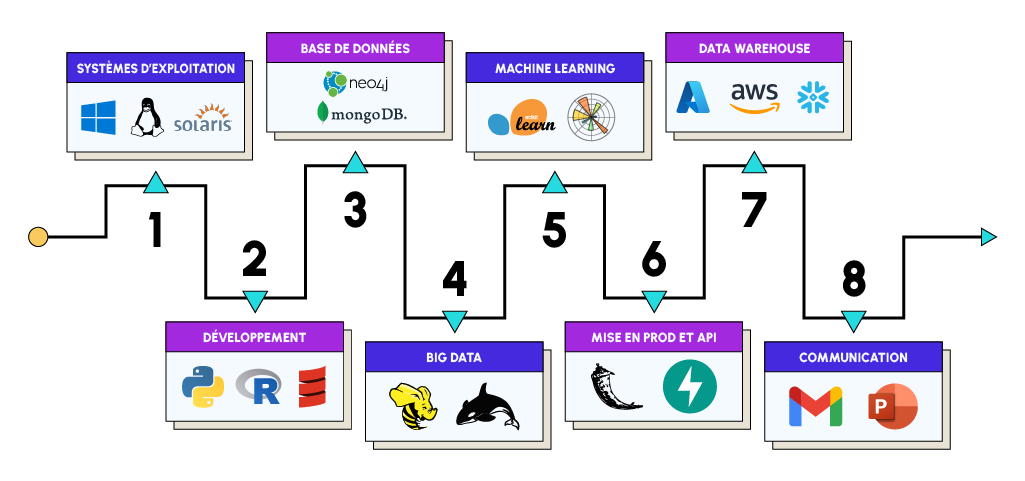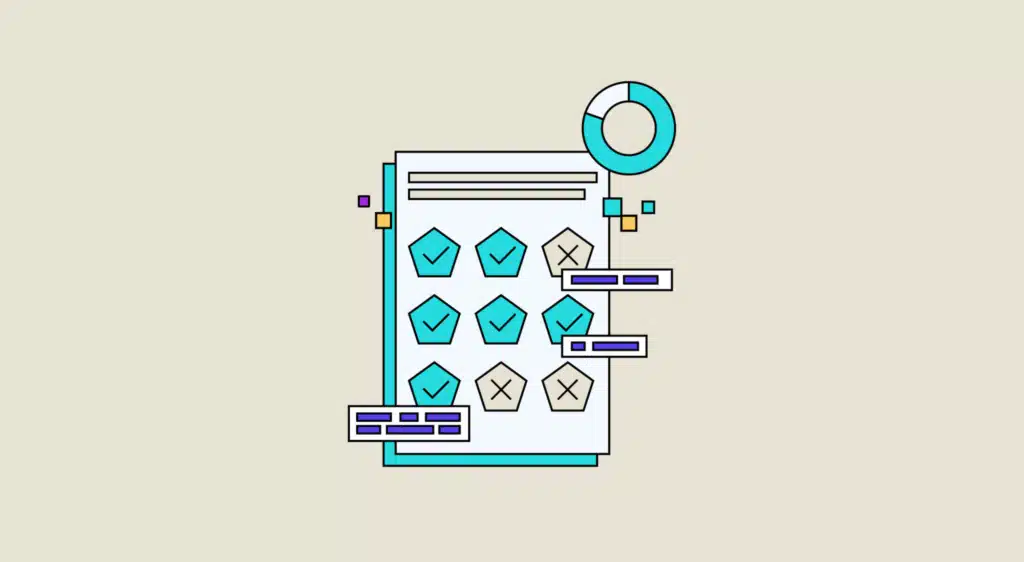Data-related professions, whether in Big Data, transformation, artificial intelligence, etc., require a panoply of knowledge and tools that you need to master, if not have at least some notions of.
These different professions require different levels of knowledge and/or expertise. For the purposes of this article, we’re going to focus on the Data Engineer profession.
As a reminder, the Data Engineer is responsible for developing data pipelines and ensuring their high availability and maintenance. They must also be able to understand and analyze data science algorithms.
| Domain | Summary | Example Technologies |
| Operating Systems | Excellent mastery of operating systems | Windows, Linux, Solaris |
| Development | Perfect command of programming languages | Python, R, Scala |
| Database | Expertise in database manipulation | SQL, MongoDB, Neo4j |
| Big Data | Expertise in managing large data volumes | Hive, HBase |
| Machine Learning | Knowledge of certain algorithms and understanding of their functioning | Scikit-learn, Matplotlib |
| Communication | Excellent communication and ability to simplify work | Emails, presentations |
| Deployment and APIs | Excellent understanding of API functioning | FastAPI, Flask |
| Data Warehouse | Knowledge of cloud technologies | Azure, AWS, Snowflake |
Must-have skills can be grouped into different categories.
- Database tools : Storing, organizing and handling large volumes of data is essential for the data engineer. Mastery of SQL and NoSQL technologies is imperative, and an integral part of daily work.
- Development is an integral part of the Data Engineer’s job. The most commonly used languages are Python, R and Scala. However, his knowledge of development also enables him to quickly upgrade to languages he doesn’t necessarily master, such as Golang, Ruby or Perl, to name but a few.
- Data warehousing. These are modern, mainly cloud-oriented technologies that enable data to be stored and accessed easily. The main players in data warehousing are Amazon with Redshift, and Microsoft with Azure SQL Database.
- But Google’s Big Query and Snowflake are also technologies that may be in demand.
It may seem obvious, but a strong knowledge of Windows and Linux operating systems is essential. - As data volumes can be very large, the Data Engineer needs to be proficient in analyzing them (and the associated tools). Hadoop-based solutions, such as Hive or HBase, are among the most sought-after tools, and therefore the most important to master.
- Skills in understanding Machine Learning algorithms. This is primarily the core business of Data Scientists, but their understanding (without entering into the same level of competence) is important for Data Engineers. This will enable them to have a good understanding of how their data will be used, but also to be able to act on these algorithms if necessary.
- Although it may still seem obvious, strong communication skills are essential. Data Engineers will have to collaborate and present results to colleagues or managers who do not have the necessary expertise to grasp the various analyses. The ability to communicate in layman’s terms and make oneself understood by one’s audience is very important, whether in person, or now increasingly remotely, via presentations or e-mails.
- Knowledge of the steps involved in putting data into production, particularly via APIs, is very important for the Data Engineer.
- Indeed, they will be required to write APIs to enable users and other services to perform actions on datasets and Machine Learning models. The use of Docker and Kubernetes to ensure seamless deployment is essential.
We hope this article has shed some light on the skills required of any self-respecting Data Engineer. However, we mustn’t forget that these professions are constantly evolving, and so it’s vital to their performance that Data Engineers maintain a constant technological watch.

To becopme a Data Engineer, find out more about the DataScientest training program.










